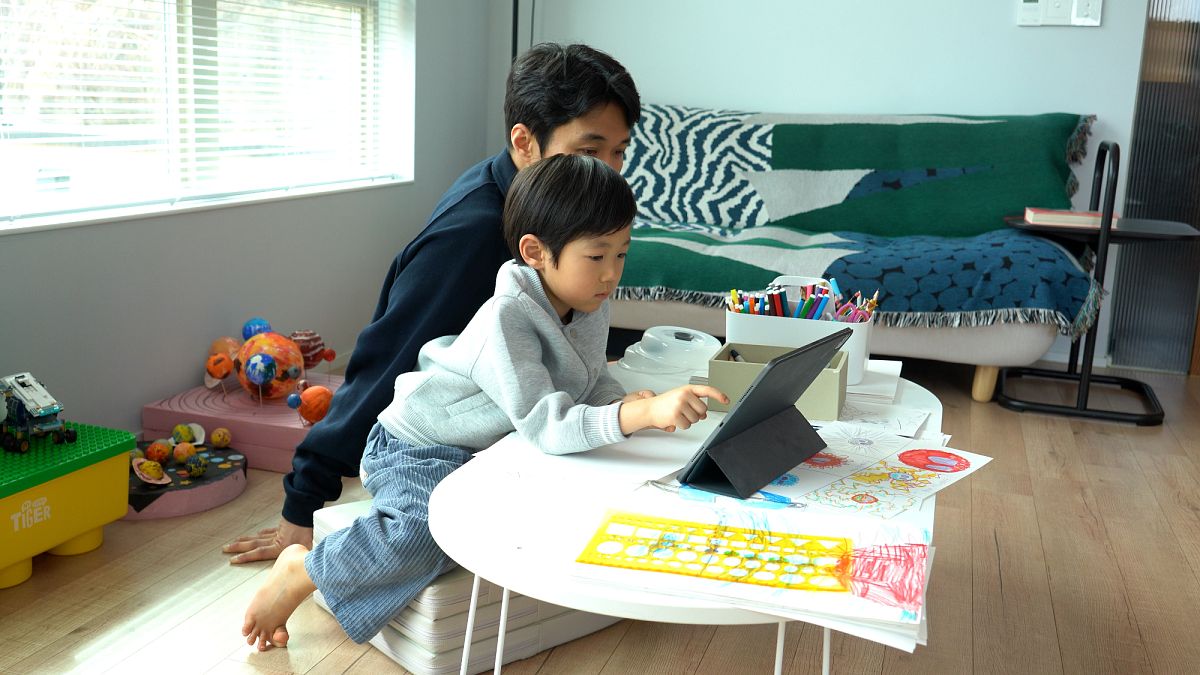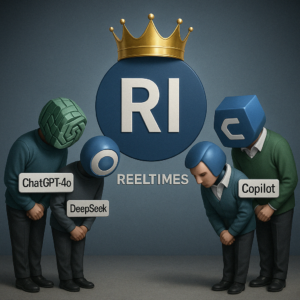Exploring Parenting in the Age of AI: A Father’s Journey Through Play

The Role of AI in Children’s Playtime and Learning in South Korea
In South Korea, the integration of generative artificial intelligence (AI) into parenting and education is becoming increasingly common. Families like the Kims are using AI to transform their children’s creativity. For instance, a father named Kim Jungu helps his son, Dohun, turn his drawings into video clips and stories, creating a unique form of playtime.
Family Time with AI
Every week, the Kim family visits the library to choose a new book. They read, discuss, and build their knowledge together. Understanding that young children cannot use AI independently, Kim prepares 30-minute sessions with tailored prompts for Dohun. During these sessions, the five-year-old engages in various creative activities, such as designing imaginary planets and writing stories about outer space.
Kim notes that AI enhances the experience by asking insightful questions and providing interesting information. Dohun, who enjoys space exploration and drawing, finds the sessions both enjoyable and educational. "Every time, the AI gives him interesting questions along with great scientific knowledge!" Kim shares. While he appreciates the positive impact of AI on his child’s learning, he is cautious about fostering an over-reliance on technology.
Critical Thinking Through Play
Experts in AI education highlight the importance of play. Kwon Jungmin, a professor at Seoul National University of Education, emphasizes that children should have a balanced playtime, whether it involves building with blocks or using AI. She believes that parents play a crucial role in guiding their children’s interactions with AI. "If kids engage with AI on their own, they may mistakenly think it’s a real being," Kwon warns.
Parents need to help children differentiate between human relationships and interactions with technology. Kwon further suggests that educational methods should focus on critical thinking, incorporating subjects like humanities and philosophy to encourage deeper understanding. This approach helps children perceive AI not as an authority but as a tool that can be critically assessed.
Navigating the Education Landscape
Interest in AI education is surging across South Korea. While some families are opting for organic, play-based learning at home, schools are increasingly integrating coding and AI literacy into their curricula. Private institutions are even using AI systems to track student progress. This growth is motivated by the competitive nature of South Korea’s education system, where a strong academic background can enhance social standing.
Kwon describes a significant investment in children’s education, primarily driven by the desire to excel in college entrance exams. This contrasts with the approach taken by Kim, who aims to cultivate his son’s imagination and creativity rather than merely focusing on technological skills.
Global Perspectives on AI Education
Concerns regarding AI in education are not limited to South Korea. In Europe, there is a growing recognition of the need for equitable access to AI literacy. Policymakers are framing AI skills as essential for navigating a technologically advanced future. The UK’s AI Council advocates for comprehensive online resources to support educators and students alike.
In Europe, educators emphasize critical thinking over competition. Kwon believes the European model is well-suited for fostering ethical perspectives on AI, as educational frameworks tend to focus more on philosophical discussions.
Empowering Children with AI Knowledge
Kim believes it’s essential for children to learn how to communicate with AI effectively since it will be a constant presence in their lives. He sees vast potential in children’s creativity, which can be nurtured through knowledge. "Creativity stems from curiosity, and I believe that knowledge can help grow that creativity," Kim shares. Through guided interactions with AI, he hopes to provide his son with the tools to explore and expand his imagination.
In a rapidly changing world, parents and educators need to collaborate to find effective ways to integrate AI into learning. Sharing successful strategies is vital for developing a holistic approach to children’s education in this digital age.





